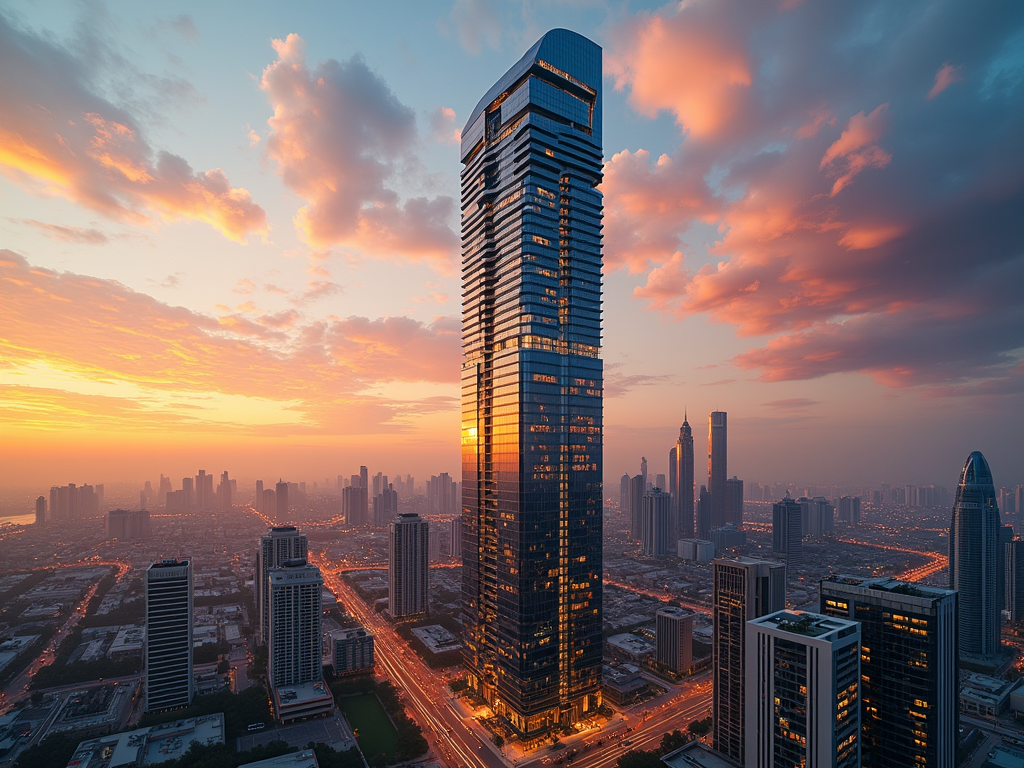Investing in Dubai’s real estate market during periods of economic uncertainty may seem daunting, but with the right strategies and information, it can be a lucrative opportunity. As one of the world’s leading investment destinations, Dubai offers unique advantages ranging from strategic location to favorable investment regulations. In this article, we will explore essential strategies for navigating the real estate landscape in Dubai, making informed decisions, and maximizing your investment potential during challenging economic times.
Understanding Dubai’s Real Estate Market

Before diving into investment strategies, it’s crucial to understand the characteristics of Dubai’s real estate market. Historically, the UAE has maintained a resilient economy, bolstered by tourism, trade, and finance. The real estate sector, in particular, has seen significant growth, driven by a blend of local and foreign investors. Key features of the market include:
- Dynamic Market Trends: Property prices in Dubai can fluctuate, often reflecting broader economic changes. Understanding these trends can aid in timing your investments.
- Emphasis on Luxury Developments: High-end properties attract both locals and expatriates, providing opportunities for significant returns.
- Tax Benefits: Dubai’s zero property tax rate for investors can enhance profitability, especially during uncertain economic climates.
- Government Regulations: The UAE government has instituted various regulations to protect investors, including ‘freehold’ property ownership for expatriates.
Research and Market Analysis

Conducting thorough research and market analysis is paramount when considering investments in any economy, especially during uncertain times. Here are steps to perform effective research:
- Identify Key Areas: Focus on areas experiencing growth or revitalization, such as Dubai Marina or Downtown Dubai.
- Monitor Economic Indicators: Track unemployment rates, consumer confidence indexes, and economic forecasts to gauge market stability.
- Engage Local Experts: Consult with real estate agents who specialize in Dubai’s market for their insights and predictions.
- Evaluate Property Types: Consider the advantages and disadvantages of investing in residential, commercial, or mixed-use properties.
- Analyze Rental Yields: Calculate potential rental yields to ensure your investments generate sustainable cash flow.
Diversification and Risk Management
In times of economic uncertainty, diversifying your investment portfolio can help mitigate risks associated with market fluctuations. Consider the following strategies:
- Invest Across Various Property Types: Diversifying between residential and commercial properties can buffer your portfolio against market volatility.
- Geographical Diversification: Explore investment opportunities in emerging neighborhoods or even different Emirates to reduce risk.
- Use of Real Estate Investment Trusts (REITs): REITs allow investors to invest in real estate without directly purchasing properties, thereby spreading risk.
- Consider Joint Ventures: Partnering with other investors may lower the financial burden and share risks associated with property investments.
Securing financing is a critical part of investing in real estate, particularly during economic uncertainty. Explore these options to finance your investments effectively:
- Bank Loans: Traditional mortgages can be secured with competitive interest rates, but lenders may impose stricter requirements during uncertain times.
- Private Financing: Consider seeking private lenders or investment groups willing to finance your investment.
- Cash Purchases: If feasible, purchasing property outright can eliminate the risk and complexity of financing.
- Equity Financing: Utilizing equity from existing properties can provide capital for new investments without taking on debt.
Conclusion
Investing in Dubai’s real estate market during economic uncertainty requires a strategic approach, a deep understanding of market dynamics, and the ability to adapt to changing conditions. By conducting thorough research, diversifying your investments, and carefully managing your finances, you can maximize your potential for success in this vibrant market. With resilience and the right information, you’ll be well-positioned to seize opportunities that arise during challenging economic times.
Frequently Asked Questions
- What is the minimum investment required for foreign investors in Dubai’s real estate? The minimum investment can vary, but generally, a foreign investor can purchase property starting from AED 1 million.
- Are there any tax implications for foreign investors in Dubai? No, Dubai offers a tax-free environment for property investors; there are no property taxes or capital gains taxes.
- How can I find reliable real estate agents in Dubai? Look for agents with positive reviews, local expertise, and affiliations with reputable real estate organizations.
- What are the risks of investing in real estate during economic uncertainty? Risks include fluctuating property values, changes in rental demand, and potential financing difficulties.
- How can I ensure a positive return on my real estate investment? Focus on location, property type, and market research, and consider long-term rental contracts to ensure stable income.
